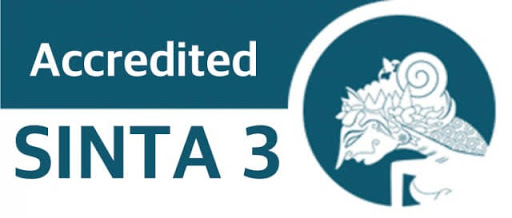How do students’ study habit and self-confidence affect their mathematics learning outcome?
DOI:
https://doi.org/10.12928/ijei.v2i2.3957Keywords:
Study habits, Self confidence, Mathematics learning outcomesAbstract
Study habits and self-confidence are several factors that are thought to be related to student mathematics learning outcomes. This research aims to determine whether there is a positive and significant relation between study habits and self-confidence to mathematics learning outcomes on the 11th grade students of SMA Negeri 1 Dukuhwaru, Indonesia. The type of this research is quantitative research. It involved 167 students of social sciences of SMA Negeri 1 Dukuhwaru. The instrument used was a test of learning outcomes and a questionnaire that had been tested for the validity and the reliability. Data analysis techniques used in this study are descriptive analysis, analysis prerequisite test, and hypothesis testing. The results of this study indicates that there is a positive and significant relation between study habits and self-confidence to mathematics learning outcomes on the 11th grade students of SMA Negeri 1 Dukuhwaru. It is indicated by . Double correlation coefficients R = 0.547 dan are 0.299 with and SR(X1) = 62,63% and SR(X2) = 37,36%, SE(X1) = 18,74% and SE(X2) = 11,18%.
References
Agustianingrum, N., & Suryantini, S. (2016). Hubungan Kebiasaan Belajar Dan Kepercayaan Diri dengan Hasil Belajar Matematika Siswa Kelas VIII SMP N 27 Batam. Jurnal Ilmiah Pendidikan Matematika, 1(2),158-164.
Creswell, J. (2015). Riset Pendidikan. Yogyakarta: Pustaka Pelajar.
Danskin, D.G., & Burnett, C. W. (1952). Study Techniques of Those Superior Students. Personnel and Guidance Journal, 31, 181-186.
Djaali. (2017). Psikologi Pendidikan. Jakarta: Bumi Aksara
Hendriana, H. (2018). Hard Skills dan Soft Skills Matematik Siswa. Bandung: Refika Aditama.
Rana, S. A.., & Kausar, R. (2011). Comparison of Study Habits and Academic Performance of Pakistani British and White British Students. Pakistan Journal of Social and Clinical Psychology, 9, 21-26.
Rahayu, M. (2015). Pengaruh Kebiasaan Belajar Terhadap Hasil Belajar Matematika. Journal of Elementary Education, 4(1), 39–45.
Slameto. (2015). Belajar dan Faktor-Faktor yang Mempengaruhi. Jakarta: Rineka Cipta.
Susanto, A. (2016). Teori Belajar dan Pembelajaran di Sekolah Dasar. Jakarta: Prenadamedia Group.

Downloads
Published
How to Cite
Issue
Section
License
Copyright (c) 2022 Afifah Sausan Rahmawati

This work is licensed under a Creative Commons Attribution-ShareAlike 4.0 International License.
Authors who publish with this journal agree to the following terms:
- Authors retain copyright with the work simultaneously licensed under a Creative Commons Attribution License that allows others to share the work with an acknowledgement of the work's authorship and initial publication in this journal.
- Authors are able to enter into separate, additional contractual arrangements for the non-exclusive distribution of the journal's published version of the work (e.g., post it to an institutional repository or publish it in a book), with an acknowledgement of its initial publication in this journal.
- Authors are permitted and encouraged to post their work online (e.g., in institutional repositories or on their website) prior to and during the submission process, as it can lead to productive exchanges, as well as earlier and greater citation of published work (See The Effect of Open Access).




